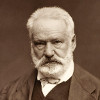“ For no one loves if he has not first been delighted by the form of the beloved, but he who delights in the form of another does not, for all that, love him, but only does so when he also longs for him when absent and craves for his presence ”
Aristotle, Nicomachean Ethics (c. 334 BC - 330 BC). copy citation
| Author | Aristotle |
|---|---|
| Source | Nicomachean Ethics |
| Topic | love presence |
| Date | c. 334 BC - 330 BC |
| Language | English |
| Reference | |
| Note | Translated by W. D. Ross |
| Weblink | http://classics.mit.edu/Aristotle/nicomachaen.mb.txt |
Context
“we come to feel goodwill for them and to share in their wishes, but we would not do anything with them; for, as we said, we feel goodwill suddenly and love them only superficially.
Goodwill seems, then, to be a beginning of friendship, as the pleasure of the eye is the beginning of love. For no one loves if he has not first been delighted by the form of the beloved, but he who delights in the form of another does not, for all that, love him, but only does so when he also longs for him when absent and craves for his presence; so too it is not possible for people to be friends if they have not come to feel goodwill for each other, but those who feel goodwill are not for all that friends; for they only wish well to those for whom they feel goodwill, and would not do anything with them nor take trouble for them.”
source


